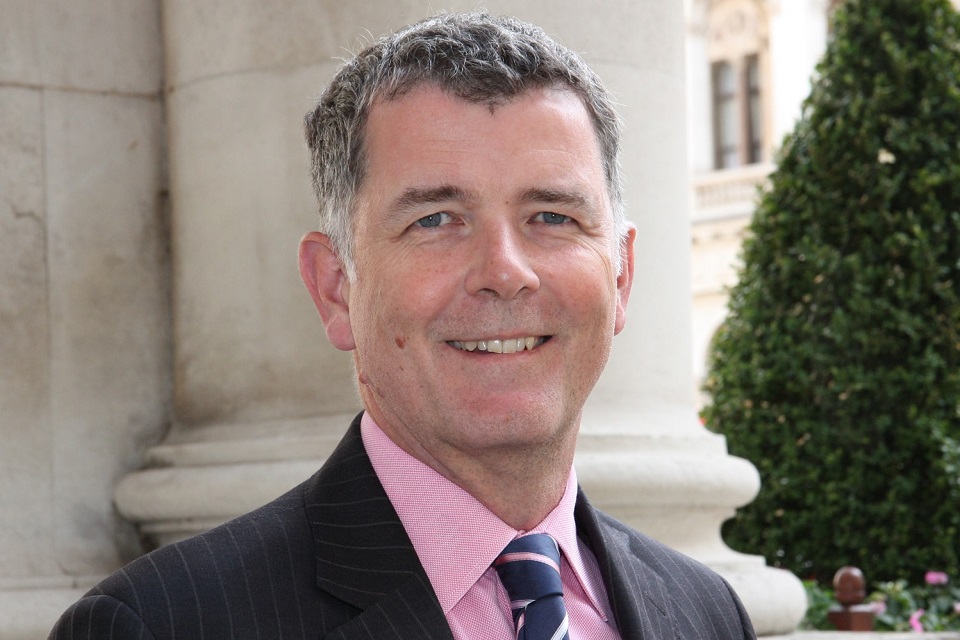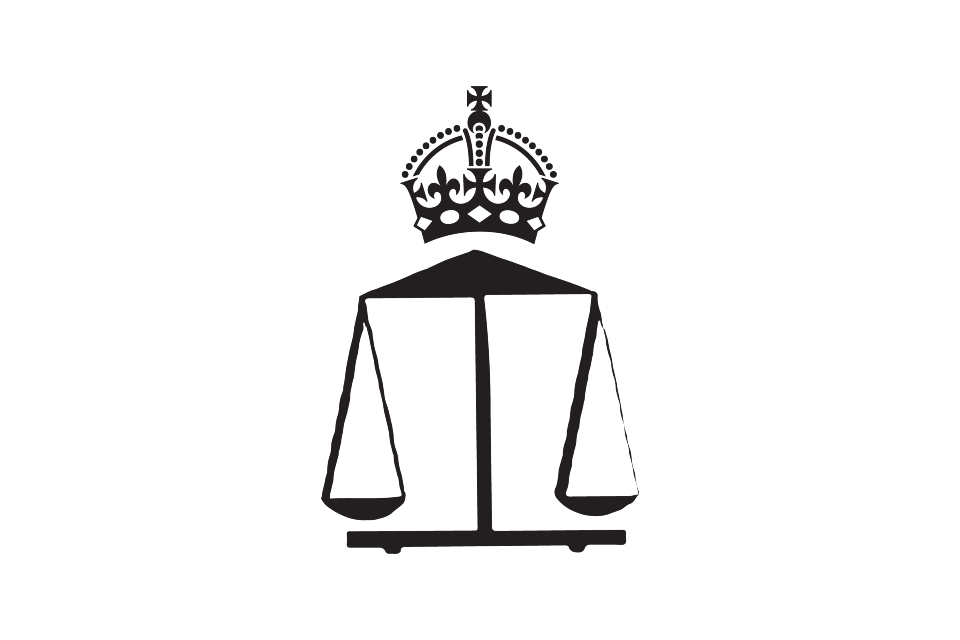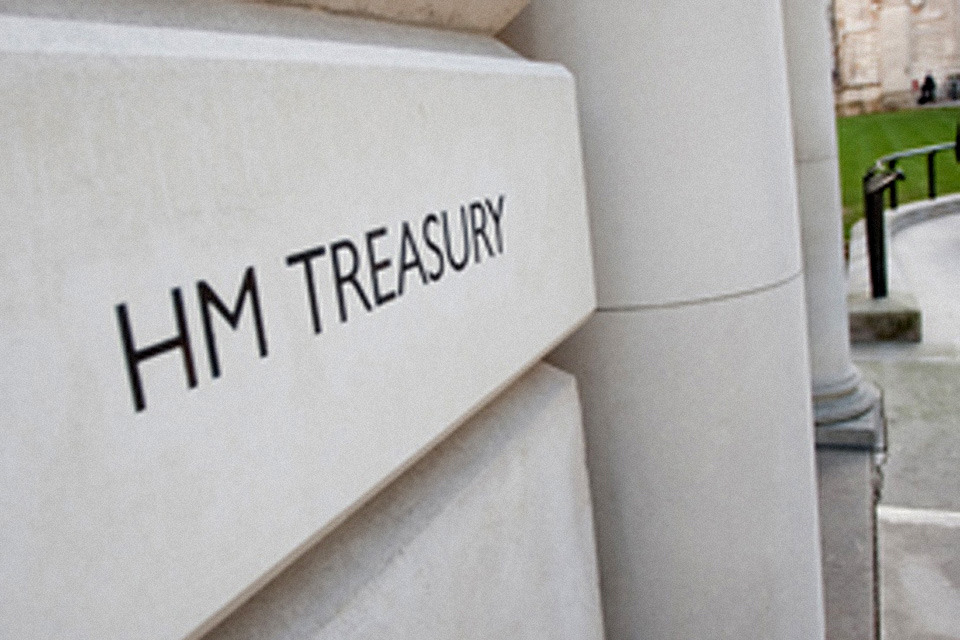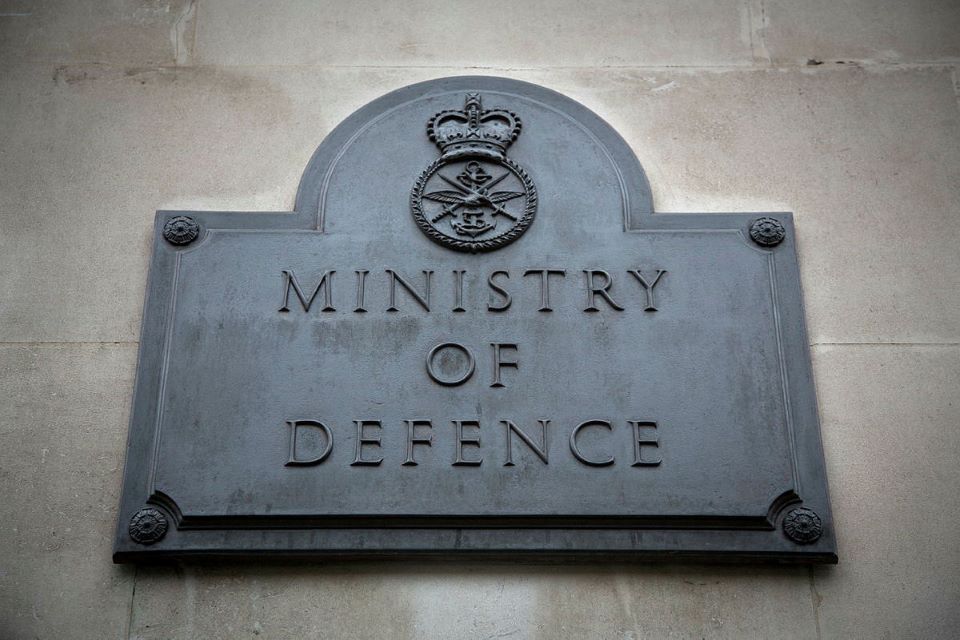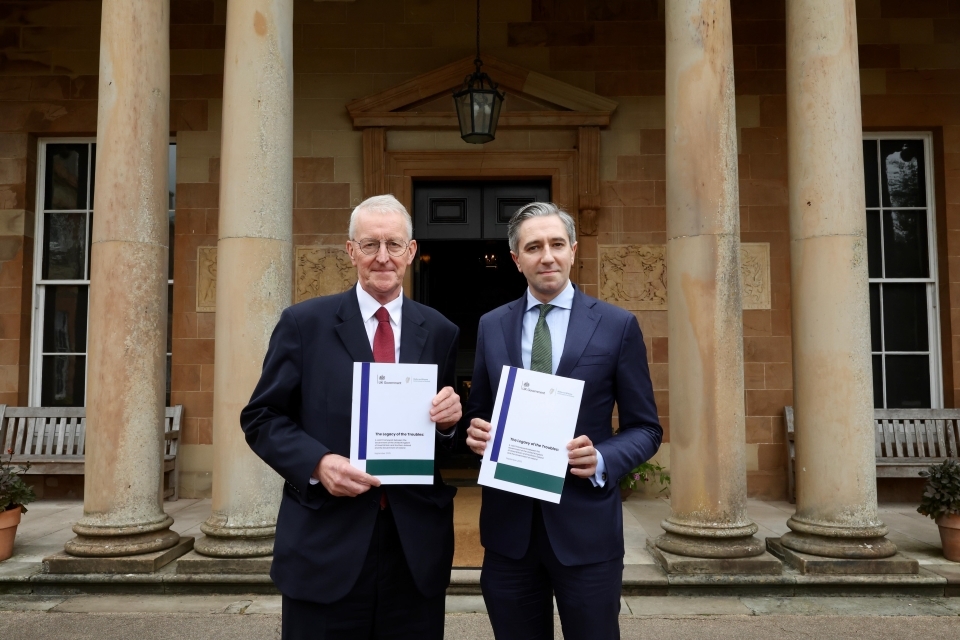REMARKS IN TURKISH
Good morning, ladies and gentlemen. It is so good to be back in my second home, Turkey, a country in which my wife and I are privileged to have lived for eight years, most recently when I served as British Ambassador for four fascinating years from 2014 through 2017.
But my connection with Turkey started much earlier in 1989 when, as a young language student, I arrived in Istanbul to board with a Turkish family for several weeks to improve my newly learnt Turkish language. I fell in love with this marvellous country, its extraordinarily hospitable people, its fabulous cuisine and stunning combination of history and breathtaking scenery… and I fell in love with Besiktas football club! The bond with Turkey was cemented by the arrival of my daughter, born here in Istanbul, a true Istanbullu.
But I didn’t just choose Istanbul for this speech for reasons of sentiment, I did so because, as it has been for centuries, Turkey is a nation of pivotal importance to the international system. On almost all of the issues that I have grappled with as Chief of MI6, Turkey has been a key player.
A NATO ally, Turkey has been a staunch supporter of Ukrainian sovereignty and independence, moved especially by the plight of their ethnic cousins, the Tatars of the Crimea, but committed above all to international law and the UN charter. To their east they share the UK’s interest in a stable Caucasus and Central Asia free from malign external influence. And to the south we have worked together against so-called Islamic State terrorists and to shore up the stability of post Assad Syria.
We both share the same abhorrence at the bestial depravity of October 7th and dismay at the appalling suffering of innocent Palestinians in Gaza that has followed, and we believe that only a two-state solution will deliver lasting security and prosperity for Israeli and Palestinians alike. In all these endeavours, I have been able to work closely with MIT directors Hakan Fidan and now Ibrahim Kalin, who are consummate professionals and firm friends.
REMARKS IN ENGLISH
When I was appointed, I decided I would speak more often and more openly, where doing so could advance Britain’s national interest. In my first public intervention at the Royal United Services Institute in London, I posited the paradox that MI6 needed to “be more open to stay secret”.
I was communicating a fundamental truth about the world we now operate in. If we’re to remain an effective intelligence service in the 21st century, and keep the identities of our agents and the tradecraft we use to run them secret, we must continue to modernise and adapt; extending our partnerships, especially in technology, and strengthening our relationship with the society we serve, whether via social media where we launched on Instagram last week, or through speeches like this one. And to do that we need to be more open.
It’s a strategic approach that I believe in even more strongly today, and I know my successor, Blaise Metreweli does too.
Any organisation that wants to maintain its licence to operate, particularly one as unique as ours, must also earn and maintain trust. For us that comes from a continuing dialogue with the British people, who we serve, and engagement with our international partners, in countries like Turkey.
And that is why I have been committed to explaining more clearly who we are, what we do, and why we do it. So, in this, my final speech as C, I want to reflect a little on what MI6 as an intelligence agency has worked to achieve over these past five years as well as touch on some of the ongoing risks that Blaise and her team will be focusing on from October. I want to pay special attention to events in Europe, and Putin’s illegal invasion of Ukraine – which has been a defining issue for me as Chief, and for our country.
First the evolution of MI6 itself – five years on, how are we different? I have always believed that MI6 should reflect the country we’re here to serve. Not just because it’s the right thing to do, but because diversity helps us to do a better job of keeping the UK safe. I am pleased we can point to progress. It’s by no means job done, but we have made measurable improvements.
Many more women have taken on leadership roles across the agency — in intelligence operations, at home and overseas, and in our technology teams. Alongside this, colleagues from ethnic minority backgrounds have been promoted into senior positions for the first time.
One of the most moving moments of my tenure was issuing a public apology to the LGBT+ community for the injustices they endured, especially the ban on their serving in MI6 up until 1991. A moment of pride.
But we have more road yet to travel; we’re still only 40% female staff, ethnic minorities are just under 10% of our officers, and we need to do more to attract people from economically deprived backgrounds – of all races.
Nowhere have we needed to change faster than in the technology space. Our adversaries are looking to leverage cutting-edge technologies to attack UK interests with ever greater precision and scale. At MI6, we need to do two things simultaneously counter these tech-infused threats; whilst also harnessing technological advances for our own purposes – the sort of technology which emerges from universities, from start-ups, from big tech, from international collaboration like this week’s UK/US tech partnership, as well as – of course – from our brilliant in-house technologists.
Which is why one of my priorities as Chief was to forge new partnerships. Much of this mission is undertaken with HMGCC, the UK’s National Security Engineering Centre. Their own bold move towards greater openness is manifest in their co-creation centre in Milton Keynes, which brings together technical expertise from outside government with in-house experts to identify brilliantly innovative solutions for the trickiest national security challenges.
We’re also helping the UK and allies build cutting-edge technology through our partnership with the National Security Strategic Investment Fund. NSSIF backs British companies whose dual use technology has both commercial and national security value. The right early support from our intelligence community can help them thrive and hopefully become the unicorns of the future.
We support bold, brave firms with big ideas in fields like quantum computing, artificial intelligence, and synthetic biology. For the UK, this delivers both advances in our own national security capabilities and creates valuable high-tech jobs at home.
This is how we stay ahead. Not by retreating deeper into secrecy, but by being open enough to form the right partnerships, recruiting staff from every part of society, and adapting at the speed of the threats we face. And we do that as part of a UK intelligence community, MI6, MI5 and GCHQ – UKIC for short. I believe no one, worldwide, is better at intelligence collaboration than UKIC – this is our “secret sauce” and the envy of partners and adversaries alike. UKIC is so much more than the sum of its parts.
So, when I said we needed to be more open to stay secret, I meant it. It’s about pace. It’s about innovation. It is about building trust within UKIC and then extending trust to partners, beyond. MI6 can only remain effective and relevant in the years to come as part of that wider team.
Trust, truth, deception and spying are key components of the biggest challenge our Service and our country has faced in my five years as Chief Russia’s unprovoked and illegal invasion of Ukraine. We have been at the forefront of efforts to support the Ukrainians in their self-defence, and their defence of the principles on which we all depend for our peace and security.
The leadership of President Zelenskyy has been critical. I remember the man I hosted for lunch in my first week as Chief; he was still pretty new into politics, an untried and untested leader. But even then, you could sense the grit and determination. To have watched him become the leader he is has been a remarkable privilege. My admiration for him is unbounded. I’m proud to say that support for Ukraine amongst the British public remains steadfast, underpinning successive Prime Ministers’ determination to be Kyiv’s staunchest advocate and ally.
The suffering of the Ukrainian people is immense. The war has seen levels of death and destruction not seen in Europe since World War Il, and civilians have been targeted with a cold and calculated brutality. In recent weeks, Russia has stepped up its attacks on civilian targets still further.
There can be no equivalence between the suffering of the aggressor and the victim, but it is absolutely clear that Putin’s lack of concern for human life extends also to his own people. Russia has incurred more than a million casualties, a quarter of them killed, as poorly trained troops from Russia’s poorest regions are fed into the meat grinder.
Every sane person wants the killing to stop. I applaud the efforts of President Trump to resolve the conflict, President Zelenskyy for his willingness to make very difficult compromises, and European leaders working to achieve a just and lasting peace.
However, I have seen absolutely no evidence that President Putin has any interest in a negotiated peace short of Ukrainian capitulation. He is stringing us along. Because the issue has and has always been sovereignty Putin denies Ukraine’s sovereignty and its very existence as a country and a nation.
He seeks to impose his imperial will by all means at his disposal. But he cannot succeed Russia simply does not have the wherewithal to fully subjugate Ukraine by force. Yes, they are grinding forward on the battlefield, but at a snail’s pace and horrendous cost, and Putin’s army is still far short of its original invasion objectives.
Bluntly – Putin has bitten off more than he can chew. He thought he was going to win an easy victory. But he – and many others – underestimated the Ukrainians, Indeed, Putin’s actions have strengthened Ukrainian national identity and accelerated the country’s Westward trajectory, as well as persuaded Sweden and Finland into joining NATO.
Putin has sought to convince the world that Russian victory is inevitable. But he lies. He lies to the world. He lies to his people. Perhaps, he even lies to himself. The ringing of an incoming phone call from the President is the equivalent of Pavlov’s tinkling bell inside the Kremlin, eliciting learned behaviour to tell Putin whatever it is the system thinks he wants to hear. But we should not believe him, or credit him with strength he does not have.
In the run up to his invasion in 2022, acting on outstanding intelligence, the US and UK governments took an extraordinary step declassifying intelligence that exposed Putin’s lies and revealed Russia’s military build-up and attack plans. It was a finely balanced call it had to be done in a way that would not endanger sources, but it proved hugely impactful. It undercut Russian disinformation, halted Russia’s initial advance and rallied the alliance that came to Ukraine’s aid.
The big picture remains that Putin is mortgaging his country’s future for his own personal legacy and a distorted version of history. As such, Russia’s economy and demography, and its means to project imperial power, are in long term decline – and Putin’s war is accelerating this decline. He invests not in infrastructure, schools and hospitals but in missiles, munitions and morgues.
History warns us never to underestimate a country fighting for its independence, and for its very survival. Greater powers than Russia have failed to subjugate weaker powers than Ukraine. In the end, if we hold our nerve, Putin will need to come to terms with the fact that he has a choice to risk an economic and political crisis that threatens his own rule, or make a sensible deal.
This is a choice he would have had to confront earlier, if not for the outside help he has been receiving yes, the drones from Iran, plus the men and materiel from North Korea, but it is the support that China has consistently given to Russia, both diplomatically and also in terms of “dual use goods” – the “Made in China” chemicals that end up in their shells; the electronic components that end up in their missiles – that have prevented Putin from reaching the conclusion that peace is his best option. And evidently, peace is in the interest of the Russian people.
I must be clear that my Government, my Service and myself are not hostile to Russia, only to the actions of the Kremlin. While Putin deceives and dissembles, our task is to illuminate the truth.
Putin is not Russia. And not all Russians subscribe to Putinism. Some keep their heads down and try to get on with their lives as best they can. Some, like Alexei Navalny, resist openly, and die for their beliefs. But others do so secretly, by working with MI6.
Intelligence officers immerse themselves in the cultures of their interlocutors. Russia is, in many ways, a big part of the history of MI6. The country holds a special place within the service. MI6 is full of men and women who know and love many of the achievements of Russian culture, and who understand and respect the sacrifices of its people in our shared struggle against Nazi Germany.
To those men and women in Russia who have truths to share and the courage to share them, I invite you to contact MI6. You will be working to bring peace to our continent; to protect the long-term interests – and redeem the honour – of your country. You will be working with a world class organisation. We will do everything in our power to keep you safe. Your needs and aspirations will be paramount. We can help you make a difference.
Spying is an ancient craft, but the world has never been changing so fast – and we are changing with it. Many of our best and most highly motivated agents have been volunteers who have offered their services to MI6. Our door is always open.
And, from today, you can now reach us securely online via our new dark web portal, Silent Courier. Our virtual front door harnesses the anonymity of the dark web so that anyone, anywhere in the world can make secure contact with MI6. So, contact us today via Silent Courier and choose a different future for yourself, for your family and for your country.
But our appeal today is not to Russians alone. Anyone, anywhere in the world with access to sensitive information relating to terrorism or hostile intelligence activity, can use the new portal to contact MI6.
Whilst Russia remains one of the key missions of MI6, the other three priorities, China, Iran and counter terrorism, are proving to be enduring challenges too. Which is why the UK in 2025 needs an MI6 that can operate with agility and at scale. To achieve that goal, I am grateful successive Prime Ministers have recognised the need to fund our intelligence community appropriately, despite tough economic times.
China in many respects straddles that dichotomy of opportunity and threat. As Russia declines, so China rises. The 21st century will undoubtedly be defined by the rise of the “Middle Kingdom”. A major player in the global system, a permanent member of the UN Security Council, and a country that is seeking to deepen its regional alliances, China has unique responsibilities that come with its size and ambition. In many areas of the global commons climate change, secure Al and world trade, China has a huge and welcome role to play. We, in the UK, want a respectful and constructive relationship with China.
But China needs to stick to the established rules of engagement and non-interference that it publicly promotes. I hear the concerns of my colleague, Director MI5 Sir Ken McCallum, about Chinese interference in the UK; and we, in the UK, will be robust in defending our freedoms, our way of life and our economic security.
Iran has featured heavily throughout my period in office. A nuclear free Iran must remain a priority, and I hope the Iranian government can see that a prosperous and secure future lies in engagement and compromise, not blindly pursuing a strategy that destabilises their neighbourhood and puts them at odds with much of the rest of the world.
Their proxies, while bringing misery, violence and death to the region, have gained Iran nothing, and we must hope their humbling by Israel may bring an opportunity for a reset. That requires a change of mentality in Tehran, not yet detected in intelligence.
And Gaza needs peace too for such a reset to take hold in the region, and to prevent the further appalling suffering of innocent Palestinians – that we see so persistently on our TV screens – fuelling radicalisation globally. We need to see the hostages returned and aid flowing freely.
On the broader topic of counter terrorism, we continue to work closely with our sister agencies in the UK – GCHQ, MI5 and as well as with CT policing, and overseas partners including Turkey, maintaining a constant focus on the terrorist threat.
In recent years, terrorist organisations such as the so-called Islamic State and Al Qaida have been damaged by a collective effort to degrade their capabilities. The threat has come more via the keyboard from homegrown, self-radicalised lone operators – a dispersed and networked danger. But IS and AQ are looking to re-group to exploit conflict and ungoverned spaces to re-establish themselves, while using technology to spread their violent ideologies online. We need agility and good partnerships to defeat these efforts to terrorise. And we need statesmen to address the root causes of the radicalisation that lead on to terrorism.
In my stint as Chief, we have faced many unexpected crises the implosion of Sudan into civil war, the collapse of the Ghani government in Afghanistan, the end of 53 years of the Assads in Syria to name but a few. We pride ourselves in our ability to maintain the long-term relationships which come into their own in a crisis.
We sourced intelligence on Sudan in hours; we continue to counter terror emanating from Afghanistan, and, having forged a relationship with HTS a year or two before they toppled Bashar, we forged a path for the UK Government to return to the country within weeks.
Syria is a good example of where, if you can get ahead of events, it really helps when they suddenly, unexpectedly move at a faster pace. This nimbleness is a fundamental requirement for MI6 – and I think we remain pretty good at it. John Ratcliffe, the CIA director, while discussing a piece of joint business, said to me recently “You guys can really hustle.”
We pride ourselves on that hustle, that tenacity, and it is a characteristic that is deeply present in my successor Blaise Metreweli. An intelligence officer to her core, with a quarter of a century of experience in this business, she understands the guts of spying. But more than that, she gets how technology can enable human espionage. She’s spent four years as ‘Q’, not just shaping our approach to fast-evolving technologies like Al, but also delivering innovative tech to the agent-runners, based on her deep understanding of human intelligence.
It’s on that topic – Human Intelligence or HUMINT – that I want to draw my remarks to a close. I come back to this subject again and again in my various speeches for a reason. We recruit and run clandestine agents. It’s what we do.
In Prague, I called on Russians disillusioned and dismayed by Putin’s agenda to come spy with us, just like their grandparents and parents did. Because of their bravery, and the bravery of other agents around the world, our ministers very often play their cards knowing at least some of what is in the other side’s hand, which improves their ability to deliver a world based on rules, stability and democracy.
Many people think that they know our most famous agents. But neither l, nor any other Chief will ever confirm their names. Indeed, because of our binding promise, most of our most consequential agents will travel through history faceless and nameless to the public, but quietly celebrated within MI6 by those few, even within the Service, who know.
As I step away, I reflect on how much has changed during my career as an intelligence officer. From the Cold War with the Soviet Union to Putin’s hot war on European soil; from Abu Nidal to 9-11. To our rise in countering the threat; from an analogue world of multiple passports to now ubiquitous surveillance; the world of espionage has changed.
But change is everywhere. It’s in geopolitics, it’s in our climate and it’s in the technology revolution. It’s in the risks and adversaries that we face off against. Change is a constant.
And, of course, Chiefs need to change too. I feel immensely confident that my successor, ‘Q’ – shortly to become ‘C’- while being true to the past, to our values and to our mission, has the fresh eyes needed to meet the challenge of change. After almost four decades in public service, I am now hanging up my cloak, returning my imaginary dagger to its scabbard, and handing over my famous green pen. Running MI6 has been the privilege of my life. There is no organisation like it in the world. Our people, our partners, our mission, the integrity with which we do our work, is second to none. I leave knowing that the mission goes on, that our capabilities are strong, and that we are in very safe hands.
As I step into the next chapter, I have the chance to pause, to take stock and to reflect on what an extraordinary personal journey it has been. It was George Smiley – John le Carré’s legendary spymaster – who said “There are moments which are made up of too much stuff for them to be lived at the time they occur.” I look forward to reflecting back on all that stuff.

